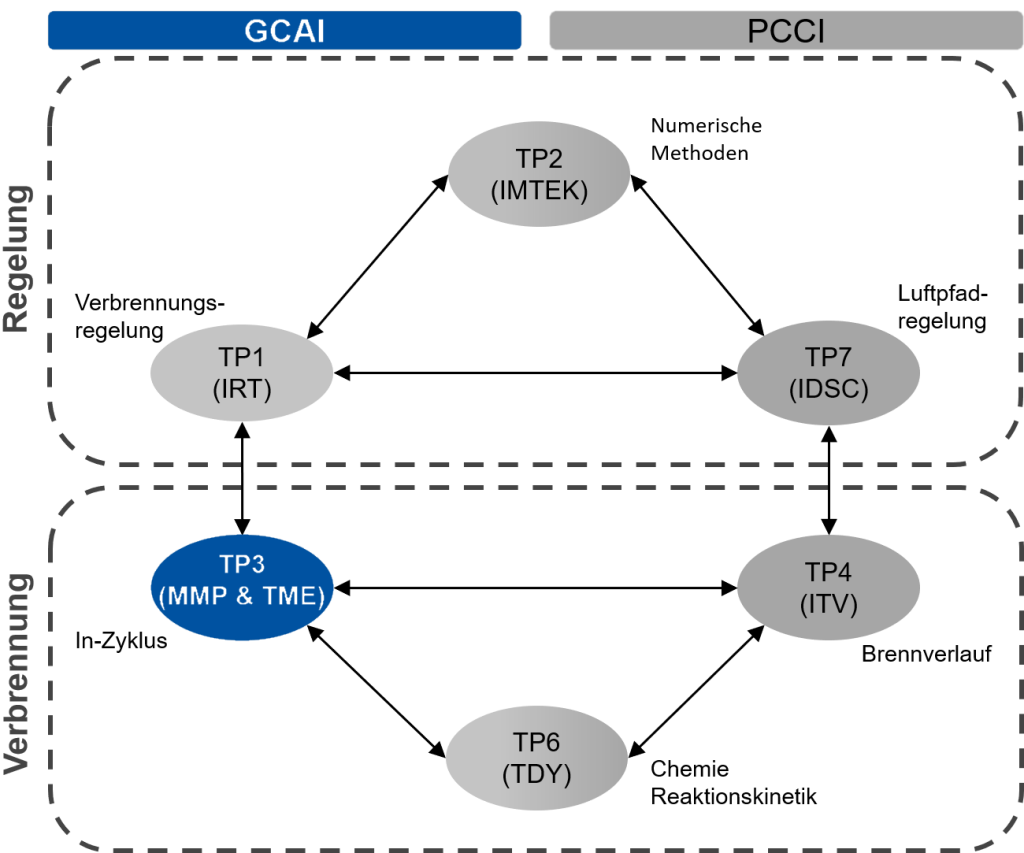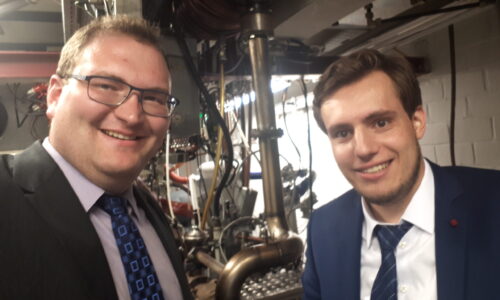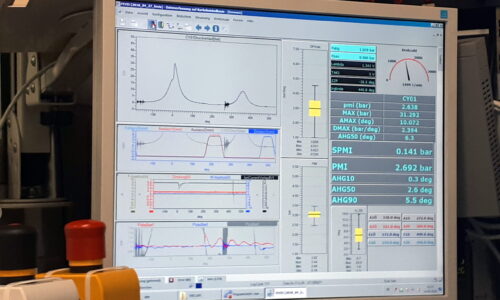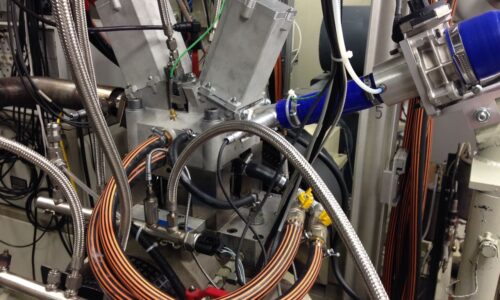Subproject 3: Stabilization of the GCAI combustion process by using intracyclic correlations
Subproject 3 (Teilprojekt 3) of FOR2401 is represented by the Teaching and Research Area Mechatronics in Mobile Propulsion (MMP) and the Chair of Thermodynamics of Mobile Energy Conversion Systems (TME). Core topics are system identification by means of thermodynamics modeling and novel approaches for measurement, real-time capable process modeling as well as the expansion of the control system by innovative sensor concepts.
The overall goal of the second funding period is to bring together the approaches developed in the first funding period in multi-scale control in collaboration with the other subprojects. The potential in large areas of the characteristic diagram is to be presented. This requires in particular the strategic generation of data by means of active process excitation on the multi-scales in order to address the complex process dynamics. The focus will be particularly on the reduction of emissions and on additional sensor concepts. The latter have the potential to provide further information on the air-fuel ratio and the thermochemical state of the cylinder charge.
Goals in the second funding period
- Generate a broad data base by defining cycle-specific control variable combinations through the application of reinforcement learning
- Reduce cycle-specific emissions through modeling and integration into multi-scale control
- Improving in-cycle control by integrating the ion current signal as a chemical sensor
- Improvement of the stability of the combustion process in a wide map range by adaptation of the in-cycle control
Highlights of the first funding period
- Substantially increased GCAI process understanding by studying cyclic and in-cycle correlations.
- Implemented minimum latency computation of process variables and in-cycle control algorithms on an FPGA.
- Development of a physical charge exchange model that, after optimization of hardware resources, is capable for the first time of calculating the state of the cylinder charge within 0.1 °KW.
- The potential of water injection as a control variable for the multi-scale control approach was presented.
- The suitability of the in-cycle control approaches for multi-scale control was demonstrated through extensive bench testing.
- Generation of a broad database for GCAI by means of a novel measurement algorithm.



Univ.-Prof. Dr.-Ing. Jakob Andert
Spokesman of the Research Unit, Subproject Leader

Univ.-Prof. Dr.-Ing. Stefan Pischinger
Subproject Leader

Julian Bedei, M. Sc.
Research Associate

Patrick Schaber, M. Sc.
Research Associate

Alexander Winkler, M. Sc.
Research Associate




